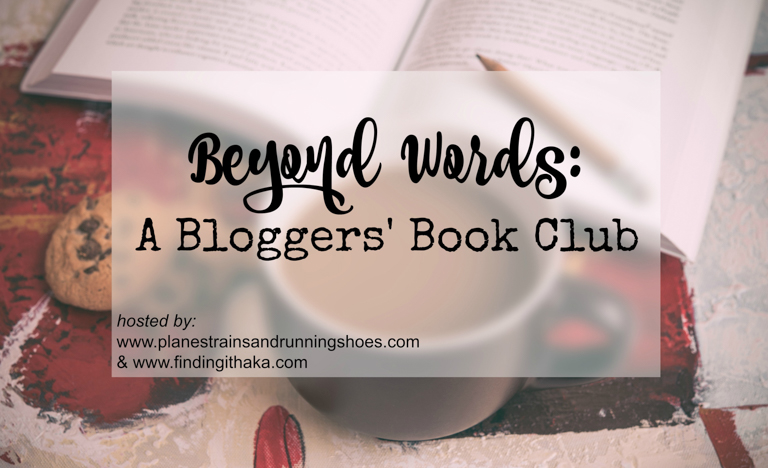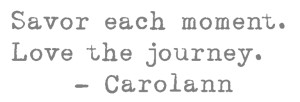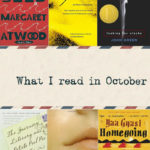Note: Finding Ithaka is a participant in the Amazon Services LLC Associates Program, an affiliate advertising program designed to provide a means for sites to earn advertising fees by advertising and linking to Amazon.com.
It’s rare that I will dedicate an entire post to just one book. But as I started writing this post, I knew that I had a lot I wanted to say about one book that has impacted me in a way I can’t fully describe. Today, I want to talk about Homegoing by Yaa Gyasi.
“We believe the one who has the power. He is the one who gets to write the story. So when you study history, you must always ask yourself, Whose story am I missing? Whose voice was suppressed so that this voice could come forth? Once you have figured that out, you must find that story too. From there, you begin to get a clearer, yet still imperfect, picture.” – Yaa Gyasi
Homegoing is a family saga that begins in the 1700s in Ghana and with two half-sisters who never meet. Effia is taken away from her family and married off to a British soldier who is working in the slave trade in Ghana. While Effia attempts to get used to her new life living in the Cape Coast Castle, her half-sister, Esi, is also ripped from her family, sold into slavery and sent to America. She awaits her future also in the Cape Coast Castle, in the dungeons where people are stacked on top of each other like logs.
Each chapter tells the story of a different descendent of Effia or Esi, alternating between each side of the family. The fates of Effia and Esi have lasting ramifications for their 7 generations of descendants, who tell their stories over the next two hundred years.
Effia’s descendants in Ghana deal with wars between the Fante and Asante and the effects of the slave trade and British colonization in Ghana. Esi’s descendants endure slavery in America, the Civil War, the Great Migration, coal mines in Alabama where black men jailed for walking in the street are forced to work for years throughout the late 19th and early 20th centuries., racism and unimaginable hardships, and the heroin epidemic in Harlem. Both families’ stories end in the present day.
“You want to know what weakness is? Weakness is treating someone as though they belong to you. Strength is knowing that everyone belongs to themselves.” – Yaa Gyasi
Hard to read at times but incredibly important, I think that this book should be required reading. This is a bold, brave novel. Through showing us the effects that each generation has had on the next, Gyasi shows us the effects that colonization and slavery has had across generations, families, and countries — effects that remain today.
Homegoing is fiction, but is also real. It gives a voice to the real people whose endured unspeakable tragedies, who never knew their families, who were sold into slavery, whose stories have never been told. Sometimes I read a historical fiction novel that is based in fact but also fiction, and I know in my bones that it was true. Homegoing is one of those books.
Although the stories are slightly interconnected, they read more like vignettes, like short stories. Gyasi is an incredibly gifted writer who packs each 20 or 30-page chapter with more emotion than many full books I’ve read. I want to give a copy to everyone I know. It has a 4.41 rating on Goodreads, which is practically unheard of, and everyone I know who has read is has given it 4.5 or 5 stars.
I read this book as part of the book club that Christy and I started a few months ago, Beyond Words. Each month, we vote on a book to read, talk about it, and have a linkup to see what everyone’e reading. Join us on Goodreads by clicking here and requesting to join. I love our book club so much because we get so many different recommendations and so many different opinions!

 Loading InLinkz ...
Loading InLinkz ...












How is it even the end of October? I saw the link up at the end of your post and thought, “wait, what?”
I feel exactly the same way you do about this book. It was so powerful and I’m so glad that I joined the book club and managed to take part this month.
I’ve read a couple of powerful books lately I must post about them!!
I almost forgot to do the linkup because October just kind of snuck up one me. People are asking me what I’m dressing up as for Halloween and I’m like what?!
I’m so glad you enjoyed the book. I love our book club because we have so many different kinds of people recommending books. I’ve read a few books that I wouldn’t have read otherwise but could not put down. If you have any recommendations please let
This book was incredible! Whoever suggested this is a genius. I loved it so much. It was so hard to read at times, but I agree, it should definitely be required reading!
It was Megan from Semi-Chamred Kind of Life. I only just started following her but I do think she is a genius!
I love our book club — another one of your amazing ideas!!
I loved the way that Yaa wrote this book! The way that the chapters alternated between family members really helped to give you a peak into what each generation was doing and feeling during that time period. I also agree that even though this was a work of fiction, this book resonated so much with us because this story is so believable as real life. Very real people probably had the same struggles as these characters.
That is what really stuck with me throughout the entire book. Obviously the characters are fiction, but this is what happened to so many people, people who we will never know the names of. Real people whose lives were shaped by things that happened to their great-great grandparents.
I don’t like to read too much about a book before I read it, so I was confused when the chapter switched from Effia to Esi. When I realized what the structure was I was disappointed I wouldn’t learn more from Effia. But as I read more, I realized what an incredible job she did in just 30 or so pages for each character’s story. The way she wrote the stories, that was all she needed. So much emotion.
Thanks for being a part of the book club! I love reading your perspectives each month!
This book sounds really intense and interesting. It’s always tough to read historical fiction that actually could’ve/did happen to people. I think it totally changes your view of society and humanity. I’m glad you enjoyed this book! I love walking away from a book, feeling like I’ve taken an intangible piece with me. Now I’m off to join your book club!
I think that you would love this book a lot. This book is going to stay with me for a long time. I already sent a copy to my sister and I think that everyone else I know is getting it for Christmas. Thank you for joining the book club! If you have any recommendations for future books please send them to me!
I love novels that span several generations/ decades (like A Tree Grows in Brooklyn) since we get to see not only the characters’ actions, but the long term consequences of those actions. I’ll have to put this one on my reading list!
I read that the author got inspiration from books like that, especially One Hundred Years of Solitude, which I also loved. What is so incredible to me is how much history and emotion she was able to pack into a 300-page book. Slavery might be over in America, but it becomes so clear how the slave trade of the 1700s influenced generations of people right up to today. I can’t say enough about this book and I really hope that everyone starts reading it in high school.
Wow this book sounds amazing and really intense! I love how you shared the story.
Thanks! It is definitely one of my new favorites.
Wow, this sounds really incredible. I might have to suggest this for next month for my book club!
I think it would be a great book club book!